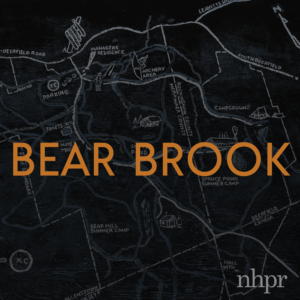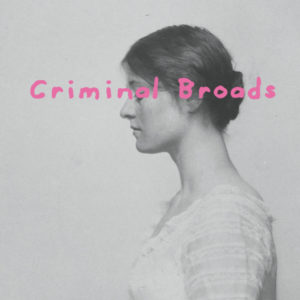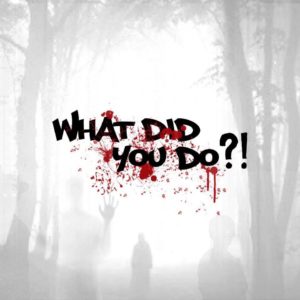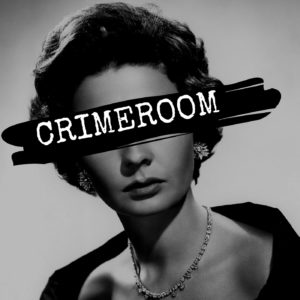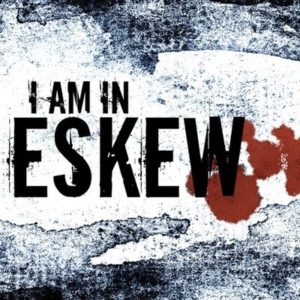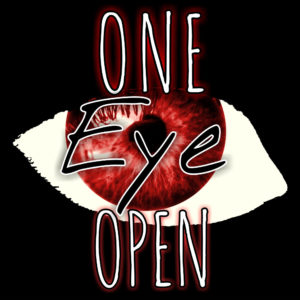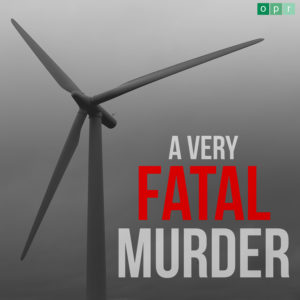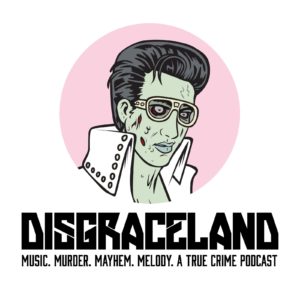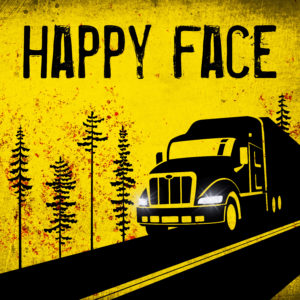I think we can all agree that 2018, on the whole, has been difficult to predict. It’s been a year of plot twists, whether good or bad (mostly bad)—but one nice development has been the crop of fresh-faced new crime podcasts, doing their part to help us kind of slog through the year.
Though there have always been podcasts who hit the ground running, in terms of production, content, style, or all of the above, I would argue that this year there have been more than ever; the bar has never been higher, even for first-time podcasters. We’re also seeing a resurgence in excellent crime podcasts produced by public radio, a stricter commitment to content warnings, and an increasingly widespread determination to cover underrepresented communities and lesser-known cases. While we certainly have a long way still to go in that arena, it’s heartening to see more and more podcasters dragging us in the right direction, and fewer and fewer podcasters getting away with the kinds of tone-deaf blunders that may have once been glossed over.
With that in mind, it’s time to recognize some of the best new crime podcasts to appear during 12 eventful months. If you’ve missed any of these, now is the perfect time to try something new—and to reflect how much longer 2018 would have felt without great new podcasts. Think of that.
Technology will save or destroy us: Bear Brook
Bear Brook, from New Hampshire Public Radio, takes up a compelling cold case that began in 1985, when two bodies were found in a barrel in Bear Brook State Park. 15 years later, two more bodies were found in a barrel about 100 hundred yards away—but it would still take years for investigators to reach a breakthrough. NHPR reporter Jason Moon takes up the complicated, decades-long quest to identify both killer and victims—in a sprawling investigation that will span the US, push the limits of forensic technology, and lead to the controversial use of genetic genealogy. As anyone who followed the capture of the Golden State Killer will be aware, debates over the question of public safety vs. genetic privacy are sure to increase in the coming years, which is an issue that Bear Brook addresses in their final episode. Though “final” might not be quite the right word, since the podcast is continuing to provide updates to its listeners. After all, this is a much bigger story than any one podcast—but what a podcast it is.
Year of the woman: Criminal Broads
Criminal Broads is written and hosted by Tori Telfer, the author of Lady Killers: Deadly Women Throughout History. Every episode of the podcast covers a woman who—for a myriad of reasons—ends up on the so-called wrong side of the law. With a good-natured, affable style, Telfer discusses everyone from serial killers to cult leaders to pirates—jumping from one historical era to another as she unpacks the legends that have surrounded many female criminals, the realities that lie behind them, and the reasons why some women become notorious while others fade into obscurity. While some history podcasts seem to build towards the moment when the curtain is pulled back and the legend is debunked, Telfer thinks the legend is fun, too, and historically interesting in its own right. She’s not only an expert, but a natural storyteller, with a lively stock of music to boot, who takes the listener on a guided tour with some fascinating women who got into serious trouble.
Learning about mental illness can be fun: What Did You Do?!
Of the many great things that happened in podcasting this year, one of my favorite stories has been watching—or hearing—What Did You Do?! come into their own as one of the best crime podcasts out there. (And yes, I do realize that their first episodes came out in late 2017, but I’m not going to quibble.) Hosts Charneil and Dee bring a refreshing, desperately-needed perspective to the crime podcasting world—as people of color, as social workers, and as friends who have both an irrepressible sense of humor and a profound sense of compassion. Far too many crime podcasts overlook, minimize, or mischaracterize the mental health issues at play in the cases they discuss; in What Did You Do?!, Dee and Charneil draw from their professional experience and educational backgrounds to conduct frank and precise discussions that bring new insight to even the most famous cases (their two-part episode on Jeffrey Dahmer being a perfect example). If one thing is clear at the end of 2018, it’s that we need more podcasts like this one.
You think this won’t be sad? Think again: Last Seen
“Well, it’s a crime scene, really. It’s like the chalk line of the body at the murder scene.” Kelly Horan, senior producer and reporter for WBUR’s Last Seen, is struck by the brutality of an empty frame—the one where a Rembrandt painting used to be, before it was slashed out of its frame during the largest unsolved art heist in history. Last Seen, a joint production with The Boston Globe, investigates the 1990 theft of 13 priceless paintings from the Isabella Stewart Gardner Museum: a case that many expected to be closed within days or weeks, only for it to remain unsolved nearly 30 years on. Horan interviews a wide array of sources, to not only pick up the thread of the investigation, but to make it palpable to the listener just how—far from a glamorous, victimless crime—the theft of these paintings is a devastating loss that continues to leave many inconsolable. As Anthony Amore, security chief at the Gardner Museum, tells Horan while they gaze at the vacant frame: “Look at it. Right? You understand. I can never walk away from this.”
You’re on your own: Crimeroom
Crimeroom is a new podcast with a flair for mystery. This extends not only to the cases covered, but to the podcast itself, whose creators have revealed almost nothing about themselves. I can say that they sound Irish, but as the host reminds us at the beginning of each episode, “I’m the speaker, and my name is X. It doesn’t matter who I am; it only matters what they did.” That’s about all the information we get (even the location in the show’s Twitter profile is listed as “Omnipresent”), but here, it’s really all we need. As we’re left anchorless and unsettled, listening to Crimeroom really does feel like entering a room: the dark, scary kind, with only one flickering lightbulb, which you feel pretty sure is about to burn out. Crimeroom intends to focus on lesser-known cases, and it’s certainly hard to spot a household name in the episodes out so far. With smooth narration, agile storytelling, and a dark, effective soundtrack, Crimeroom is kind of terrifying, and completely great.
Everybody’s trapped sometimes: I Am In Eskew
I’m not even going to try to count the number of times I have urged some unsuspecting person to listen to I Am In Eskew. This indie British horror podcast came out of nowhere in January to drop episodes that were instantly assured, taking place in a fully-built world. The story opens as an audio-journal-verging-on-sardonic-travel-guide to Eskew, a nightmarish city where brutality and betrayal are societal norms, where a man who’s murdered his family is nothing but good copy, and where massacres in the street are forgotten the next day. David Ward, the podcast’s central protagonist, is trapped in Eskew for reasons unknown; his successive attempts to simply survive the city gradually culminate into a complex, overarching narrative that will stretch all the way to London, and to the private detective who’s been hired to find him. Many people—including me—have compared I Am In Eskew to H.P. Lovecraft, or Thomas Ligotti, or Welcome to Night Vale. And I still think that’s all true—but I Am in Eskew is also something all its own.
Podcasters are your friends: One Eye Open
No list of wonderful 2018 debuts would be complete without One Eye Open. In just a few months, host Stephy has earned a devoted following—for her warm-hearted style, touching family stories, fastidious research, refreshing gin and tonics, and crucially, jokes. As the daughter of an English homicide detective, Stephy has been brought up with more insight than most into the world of crime—but rather than step away from the listener, she welcomes them in. Blending firsthand sources and quotations with thoughtful, empathetic storytelling, Stephy creates episodes that feel as personal as they are precise; just as she opens each case with recollections of her own family, she never loses sight of the families in her stories, or forgets to consider the ever-changing, never-ending impact of crime—not just on victims and perpetrators, but on everyone close to them.
How bad can things get: Uncover: Escaping NXIVM and Bomb on Board
It’s hard to believe that CBC’s Uncover has only been around since September. Season 1, Escaping NXIVM, became a phenomenon practically overnight, as reporter Josh Bloch followed his childhood friend down the road to NXIVM, a sex-trafficking cult disguised as a self-help group. Uncover breaks Sarah Edmondson’s journey down into small, recognizable stages, so that it becomes easier and easier to understand how a person could get sucked into something very dangerous—as long as every step seems reasonable compared to the one that came before. After a short break, Season 2 of Uncover kicked off in November—examining the 1965 explosion of Canadian Pacific Flight 21, which killed all 52 people on board, and which is now considered to be the largest unsolved murder in Canada. Hosts Johanna Wagstaffe and Ian Hanomansing bring fresh eyes to a case that has largely fallen out of public memory: recreating the plane’s final moments, scrutinizing the list of suspects, and hearing from some of many people affected, who are still looking skyward, hoping for resolution.
Laughing through the self-awareness: A Very Fatal Murder
In the past year, there have been several true crime parody podcasts, in a wide range of styles. A Very Fatal Murder, produced by The Onion, was one of the first—and for my money, it’s still the best. No one is more skilled than The Onion at writing nimble punchlines that pull the rug out from under you, and this podcast is no exception. As journalist David Pascall (played by comedian David Sidorov) tries to solve—or just tries to narrate trying to solve—the murder of teenager Hayley Price, the humor and absurdity never really let up, even when said humor comes at the expense of the podcast itself. The scene where David makes Haley’s sobbing parents read out ads for a meal delivery service is a good example of how A Very Fatal Murder is both incredibly funny and deeply disturbing. Before long, the podcast will poke fun at even its own moral undertones—but even so, the very mockery they’re mocking might (I imagine) prove very hard to forget, the next time (or every time) you hear an ad for Blue Apron.
You can never be too famous to wreck your life: Disgraceland
When Disgraceland debuted in February, host Jake Brennan told listeners: “I’ve spent my entire life in and around rock ‘n roll. And the one thing I know to be absolutely true is that the best rock stars—the most interesting, the most legit—they’re the craziest, and they have the most insane things happen to them. Maybe because they’re wired differently—more like feral, narcissistic animals than functioning members of society.” That’s a hypothesis that Brennan tests repeatedly in Disgraceland, which examines the intersection of true crime and rock and roll. With every episode, Brennan brings the listener the types of outrageous true stories that you couldn’t make up—riveting, deadly, jaw-dropping, heartbreaking. Whether discussing Brian Jones or Lisa Lopes, John Lennon or his killer, Brennan deftly reimagines and delivers his subjects’ inner monologues, so that each episode is not only a retelling, but a bona fide performance.
Devastation has no limit: Happy Face
For anyone remotely interested in true crime, Happy Face is a must-listen. While it’s not the first podcast to take up the topic of the Keith Hunter Jesperson, also known as the Smiley Face Killer, it’s the only one to do so from within the killer’s family. Melissa Moore, who was all of 15 years old when she learned that her father was a serial killer, examines her own upbringing as well as her father’s, to try and understand how so many horrors could have happened behind her back, how she could be related to someone capable of murder, whether she can reconcile the killer with the father she trusted, and whether she can ever move past an overwhelming sense of guilt. With its eerie soundtrack, painstaking production, and unswerving compassion, Happy Face pushes the boundaries of true crime podcasting—creating a rich and moving portrait of family, memory, loss, and resilience.


